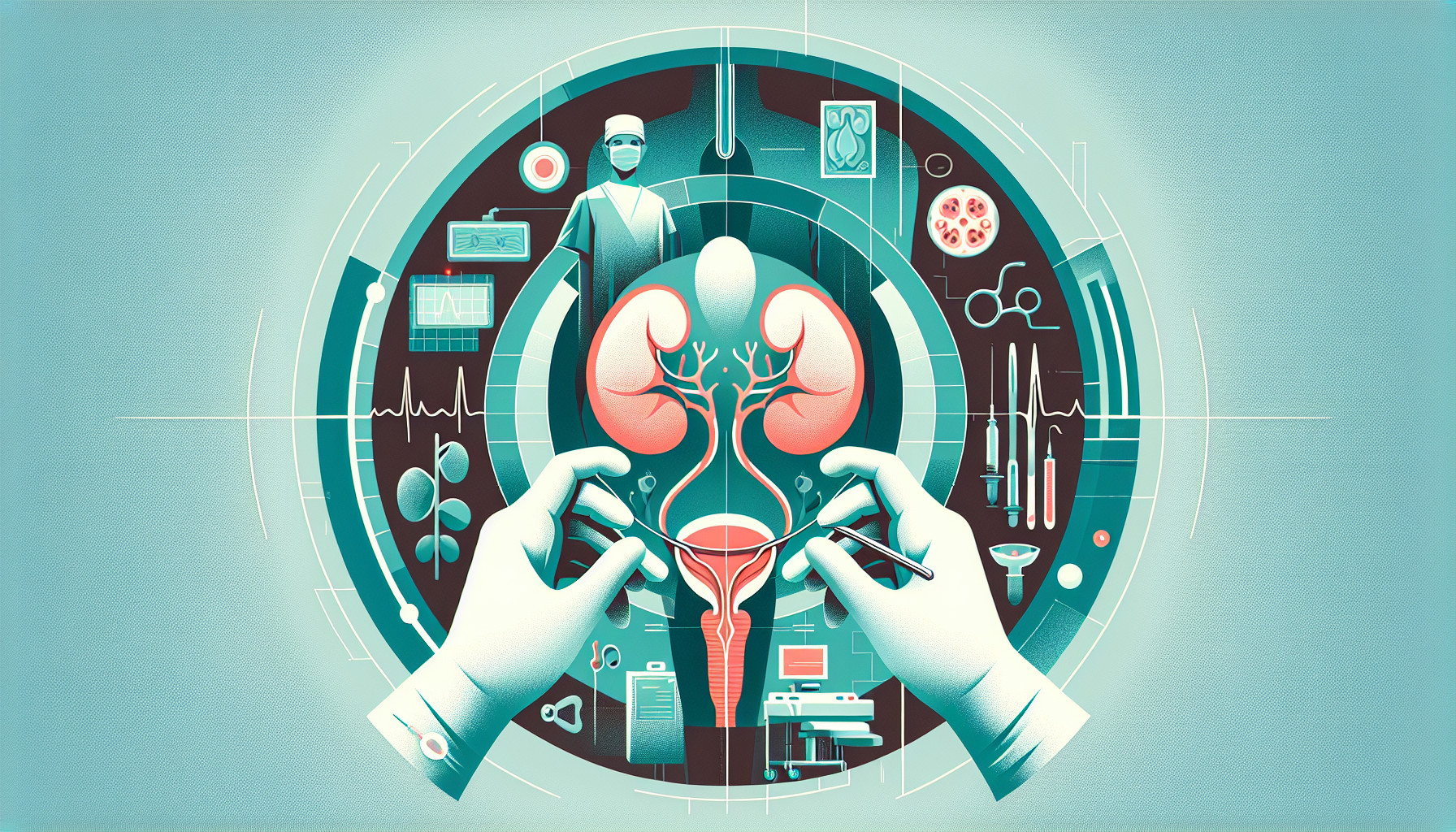Our Summary
This research paper looks at how bladder transplants work in female rats. They split the rats into two groups: one group had their own bladder moved to a different spot (autotransplant), and the other group had a bladder from a genetically similar rat put into them (isogeneic transplant). They checked how well the bladders were working 30 and 60 days after the transplant. The researchers found that the transplanted bladders were working just fine, they were filling and emptying normally, and there were no issues like leaks or damage. This suggests that bladder transplants could be a good option for treatment. The researchers also think that certain factors related to blood vessel and nerve cell growth are involved in making sure the transplanted organ stays healthy.
FAQs
- What were the two types of bladder transplants performed on the female rats in the research?
- What did the researchers find about the functioning of the transplanted bladders in the rats?
- What factors do the researchers believe are important for the transplanted organ’s health?
Doctor’s Tip
A helpful tip a doctor might tell a patient about bladder surgery is to follow post-operative care instructions carefully, such as maintaining proper hygiene, avoiding heavy lifting or strenuous activities, and taking prescribed medications as directed. It is also important to attend follow-up appointments with your healthcare provider to monitor progress and address any concerns. Additionally, staying hydrated and maintaining a healthy lifestyle can help support healing and recovery after bladder surgery.
Suitable For
Bladder surgery is typically recommended for patients who have certain conditions or issues affecting their bladder that cannot be effectively treated with other methods. Some common reasons for bladder surgery include:
- Bladder cancer: Surgery may be necessary to remove tumors or the entire bladder in cases of advanced cancer.
- Bladder stones: Large bladder stones that cannot be passed through the urine may need to be surgically removed.
- Bladder prolapse: In cases of severe bladder prolapse, where the bladder drops into the vagina, surgery may be needed to repair and support the bladder.
- Urinary incontinence: Surgery may be recommended for patients with severe urinary incontinence that does not respond to other treatments.
- Interstitial cystitis: In some cases, surgery may be considered for patients with severe interstitial cystitis that does not improve with other treatments.
- Bladder diverticulum: Surgery may be needed to remove a bladder diverticulum, which is an outpouching of the bladder wall.
Overall, bladder surgery is typically recommended for patients with chronic or severe bladder conditions that significantly impact their quality of life and cannot be effectively managed with other treatments.
Timeline
Before bladder surgery:
- Patient undergoes a consultation with a urologist to discuss the need for bladder surgery and potential treatment options.
- Patient may undergo various tests and examinations to assess the condition of their bladder and overall health.
- Surgery date is scheduled and patient receives instructions on pre-operative care, such as fasting and medication adjustments.
- On the day of surgery, patient is admitted to the hospital and undergoes the procedure under general anesthesia.
After bladder surgery:
- Patient wakes up in the recovery room and is monitored closely for any complications.
- Patient may experience discomfort, pain, and urinary catheterization post-surgery.
- Patient is discharged from the hospital once stable and given instructions on post-operative care, including wound care, medication management, and follow-up appointments.
- Patient may experience gradual improvement in bladder function and overall recovery over the following weeks and months.
- Follow-up appointments with the urologist are scheduled to monitor the success of the surgery and address any concerns or complications that may arise.
What to Ask Your Doctor
- What is the specific reason for recommending bladder surgery?
- What are the different types of bladder surgery available and which one is recommended for my case?
- What are the potential risks and complications associated with bladder surgery?
- What is the success rate of bladder transplants in patients with similar conditions?
- What is the recovery process like after bladder surgery and how long is the expected recovery time?
- Will I need to make any lifestyle changes or follow a special diet after bladder surgery?
- Are there any alternative treatments or therapies that could be considered instead of bladder surgery?
- How often will follow-up appointments be needed after bladder surgery?
- Will bladder surgery affect my ability to urinate normally or have normal bladder function in the long term?
- Are there any specific factors that could increase the likelihood of success or complications with bladder surgery in my case?
Reference
Authors: Rocha JN. Journal: Int Braz J Urol. 2017 Jan-Feb;43(1):112-120. doi: 10.1590/S1677-5538.IBJU.2015.0117. PMID: 28124533
